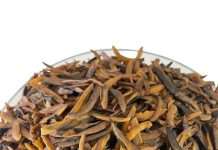
What is Acne?
The word acne generally refers to a skin condition caused by the over-production of sebum, resulting in plugged pores and the formation of pimples. It typically affects the face, chest, and back. Although it is most commonly associated with adolescence, acne can occur at any age.
According to the World Health Organisation, acne is the eighth most common disease in the world, affecting over 650 million people. It is most prevalent among teenagers, although it can affect people of any age.
There are a number of factors that can contribute to the development of acne, including genetics, diet, stress, and hormone levels. While there is no cure for acne, there are a number of treatments that can help to control it.
If you are suffering from acne, it is important to see a dermatologist or other healthcare providers to discuss your treatment options.
Nigerian Diets for an Acne Free Skin
When it comes to the best Nigerian foods for an acne free skin, a professional nutritionist would say that there are many options available. However, certain foods may be better for some people than others. For example, someone with oily skin may want to avoid foods that are high in oil or fat. Conversely, someone with dry skin may want to consume more foods that are hydrating.
While there is no one magic bullet to prevent or cure acne, maintaining a healthy lifestyle and eating the right foods can go a long way in keeping your skin clear and blemish-free.
In an article published in the Nigerian Food Journal, Dr Folu Olatona, a nutritionist who works at the Lagos Executive Cardiovascular Clinic, lists some of the top Nigerian foods that can help keep your skin clear and free from acne.
They are as follows:
1. Plantain: Plantains are rich in vitamins A and C, which are both essential for healthy skin. They also contain potassium, which helps to regulate oil production and prevent clogged pores.
2. Sweet potatoes: Sweet potatoes are another great source of vitamins A and C, as well as beta-carotene, an antioxidant that can help reduce inflammation.
3. Tomatoes: Tomatoes are a great source of lycopene, an antioxidant that has been shown to reduce the size and severity of pimples.
- Fish: Fish such as salmon, mackerel, and sardines are rich in omega-3 fatty acids, which have anti-inflammatory properties and can help to reduce the redness and swelling of pimples.
- Nuts: Nuts such as almonds and walnuts are a good source of zinc, a mineral that plays a role in wound healing and can help to reduce the inflammation and redness of acne lesions.
Following a healthy diet that includes these and other nutrient-rich foods can help you to achieve and maintain clear, blemish-free skin.
Nigerian Foods that can Trigger Acne Breakouts
Having considered foods that make you acne free, it is also important to let you know certain foods that predispose you to the development of acne.
Numerous scientific studies have shown that certain foods can trigger acne breakouts. A study published in the Journal of Dermatology found that foods high in glycemic index are associated with an increased risk of acne.
The foods are:
- Fried foods
Fried foods are high in oil and can clog your pores, leading to breakouts. They also tend to be high in sugar, which can trigger inflammation and increase the production of sebum, the oily substance that leads to acne.
2. Processed foods
Processed foods are often high in sugar and unhealthy fats, both of which can trigger acne breakouts. They can also contain artificial ingredients and preservatives, which can further irritate your skin.
3. Dairy products
Dairy products are a common trigger of acne, especially cow’s milk. Milk contains hormones that can trigger the production of sebum, which can lead to breakouts. Dairy products can also contain unhealthy fats and additives, which can further irritate your skin.
4. Refined carbohydrates
Refined carbohydrates are a major trigger of acne. These include foods like white bread, pasta, and pastries. Refined carbs are quickly broken down into sugar, which can trigger inflammation and increase the production of sebum.
5. Chocolate
Chocolate is often blamed for causing acne, but there is no scientific evidence to support this claim. However, chocolate does contain sugar and unhealthy fats, both of which can trigger breakouts.
So, if you are suffering from acne, it is best to avoid consuming foods that are high in glycemic index or dairy products. Instead, focus on eating foods that are low in glycemic index, such as vegetables, fruits and whole grains. These foods will help to keep your blood sugar levels stable, which in turn can help to reduce the risk of acne.












thanks for this about acene and how we can prevent it